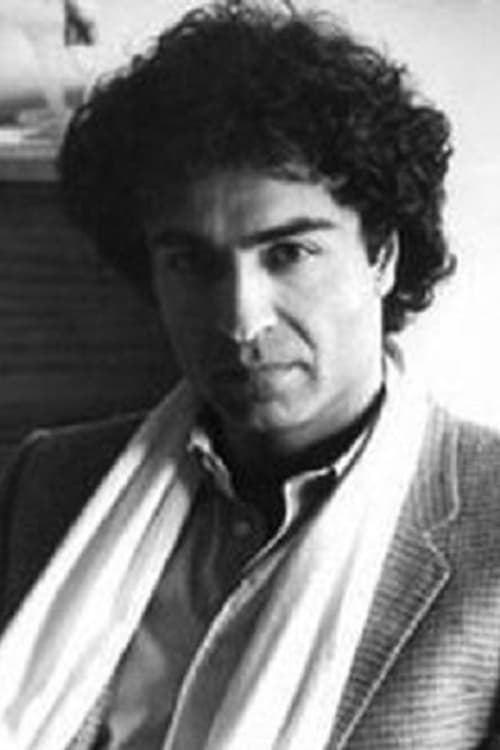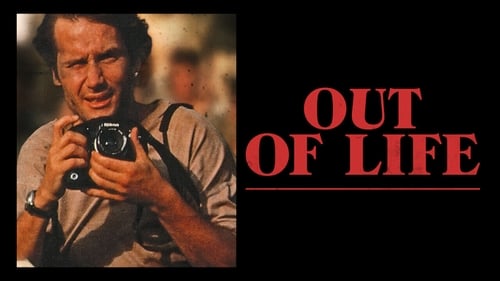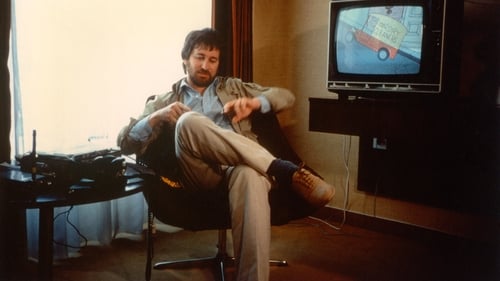
Maroun Bagdadi
Birth : 1950-01-21, Lebanon
Death : 1993-12-10
History
Maroun Bagdadi (Arabic: مارون بغدادي; January 21, 1950 – December 11, 1993) was a Lebanese film director known for his vivid portrayal of Lebanon's civil war. Bagdadi was internationally the best-known Lebanese filmmaker of his generation. He worked with American producer/director Francis Coppola and made several films in French that became hits in France.
Maroun Bagdadi was arguably Lebanon's most prominent filmmaker, one whose work has been seen all over the world. One of his best-known films, Houroub Saghira (Little Wars), was shown at the 1982 Cannes Film Festival, drawing this comment from a prominent film critic: "To make a film about Beirut that eschews polemics for more universal, more human issues is an achievement." His first Lebanese production was for television, an educational program called 7½. In 1975, he directed his first feature film, Beyrouth Ya Beyrouth. Koullouna Lil Watan, a 75-minute documentary produced in 1979, won the Jury Honor Prize at the International Leipzig Festival Documentary and Animated Film.

Writer
Who would have expected Brigitte to marry a prisoner with a long sentence in the first place? In this romantic action movie, that is only the first in a long line of surprising actions by the young woman. Somehow, she manages to get hooked to the young prisoner before realizing that he'll be locked up for another three or four decades. She decides that this is much too long to wait to spend time with her sweetheart and decides to learn how to fly a helicopter. Why? So she can fly in and take him out of his prison yard, which is exactly what she does, thrilling romantics all over France and seriously upsetting the authorities. This award-winning film is based on a true incident from 1986.

Director
Who would have expected Brigitte to marry a prisoner with a long sentence in the first place? In this romantic action movie, that is only the first in a long line of surprising actions by the young woman. Somehow, she manages to get hooked to the young prisoner before realizing that he'll be locked up for another three or four decades. She decides that this is much too long to wait to spend time with her sweetheart and decides to learn how to fly a helicopter. Why? So she can fly in and take him out of his prison yard, which is exactly what she does, thrilling romantics all over France and seriously upsetting the authorities. This award-winning film is based on a true incident from 1986.

Screenplay
Patrick Perrault, a photo-journalist covering the war in Beirut in the late 1980s, is himself caught up in the hostilities when one day he is picked up and bundled into a car at gun-point. Blind-folded, he is taken to an unknown location where he discovers that he is being taken hostage by Lebanese guerrillas.

Director
Patrick Perrault, a photo-journalist covering the war in Beirut in the late 1980s, is himself caught up in the hostilities when one day he is picked up and bundled into a car at gun-point. Blind-folded, he is taken to an unknown location where he discovers that he is being taken hostage by Lebanese guerrillas.

Director
Doctor Fournier arrives in Beirut as the civil war is raging. He finds himself with a colleague working in a hospital controlled by a Shiite militia and treating the injured. Driven by his doctor’s oath, he crosses the demarcation line to treat Christian casualties of the ongoing clashes. This causes Muslims in his neighborhood to brand him a traitor. He is kidnapped to be exchanged for a fighter captured by Christian militiamen. The film is part of the TV series *Médecins des hommes *(*Doctors of men*). It was considered the best movie in the series.

Writer
Claire (Laure Marsac) is a 16-year-old young woman who discovers her father Pierre (Bernard Giraudeau) is not a healing physician but a killer with a bloody war record in the Lebanese conflict. She runs away from home and into the arms of Kamal (Michal Albertini). While Pierre stalks two terrorists, Claire and Kamal are violently confronted by Kamal's abandoned wife and family. The ravages of the conflict extend to those who are never participants in the battle but are among the casualties of war.

Director
Claire (Laure Marsac) is a 16-year-old young woman who discovers her father Pierre (Bernard Giraudeau) is not a healing physician but a killer with a bloody war record in the Lebanese conflict. She runs away from home and into the arms of Kamal (Michal Albertini). While Pierre stalks two terrorists, Claire and Kamal are violently confronted by Kamal's abandoned wife and family. The ravages of the conflict extend to those who are never participants in the battle but are among the casualties of war.

Director
Bagdadi visits the southernmost town of Nabatiyeh to capture the beating pulse of the Ashoura celebrations as the faithful commemorate a chapter of their collective memory. He retraces the details of a story through those that identify with it year after year, analyzing history to understand its present-day influences.

Director
The camera wanders through streets standing witness to a war that has destroyed a city and an entire nation. Bagdadi goes to war against the Lebanese civil war, exploring different locations and situations in a country faced with its own demise. The poetic text raises questions of life and death through contrasting images of violent death and the will to live.

Producer
Beirut resident Soraya is drawn to two men: daredevil photographer Nabil and Talal, who must embrace his feudal heritage when his father is kidnapped.

Screenplay
Beirut resident Soraya is drawn to two men: daredevil photographer Nabil and Talal, who must embrace his feudal heritage when his father is kidnapped.

Director
Beirut resident Soraya is drawn to two men: daredevil photographer Nabil and Talal, who must embrace his feudal heritage when his father is kidnapped.

Self
During the 1982 Cannes Film Festival, Wenders asks a number of global film directors to, one at a time, go into a hotel room, turn on the camera and answer a simple question: "What is the future of cinema?"

Director
At every station, between sites filled with poetry and nostalgia for a bygone era, the poet's dashed dreams and idealized vision of her country coincide with the director's own.

Director
"The Story of a Village and a War" is a film about the citizens of South Lebanon during the israeli invasion in 1978. The film highlights their daily suffering during the occupation. It was shown at the United Nations at the request of Ghassan Tueini, the representative of Lebanon back then. The screening helped in the issuance of resolution 425, which provided for the withdrawal of the israeli occupation from the South.

Director
After the 1978 Israeli invasion of Lebanon, children try to sing the national anthem as citizens search for hope in the war-torn South.

Director
Interviews with mothers and family members who lost loved ones in the Lebanese conflict with Israel.

Director
A documentary film eulogizing the life of Kamal Jumblat.

Director
In the aftermath of the 1967 defeat, four young Lebanese try to figure out their places in a society whose rules seem to have changed. It proved to be an extraordinary anticipation of the civil war that would engulf the country while the film was being edited.






